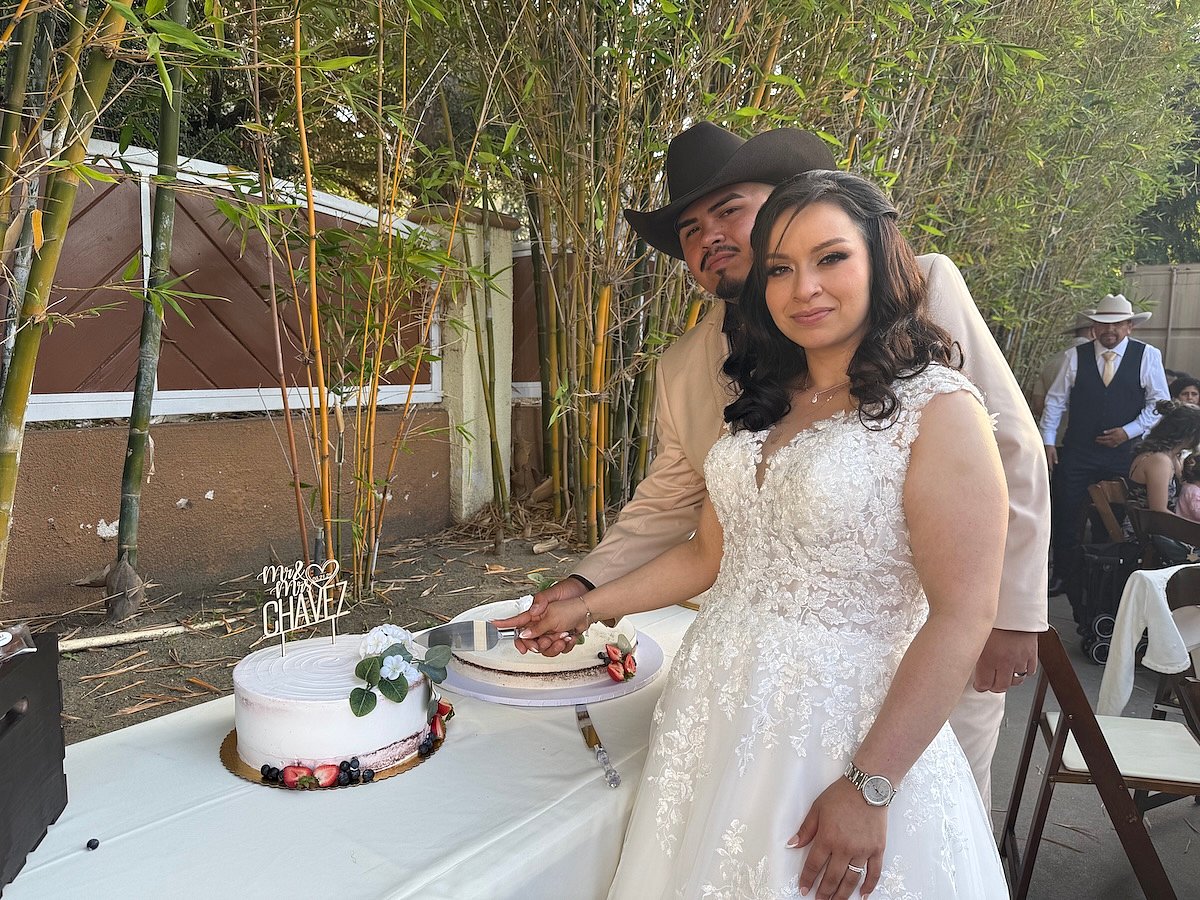(330) 876-1228
8507 Main StreetKinsman, OH 44428
(330) 876-1229

A young woman became a June bride months after surviving complex surgery to remove a 40-pound tumor from her body, Cedars-Sinai doctors report.
Adriana Pulido, 24, died on the operating table six times during an early attempt to remove the huge tumor.
Located near her liver, the tumor had grown so large that it had displaced her heart and was pressing against her right lung.
“The doctors came out of the surgery and told my mom they couldn’t move forward with the surgery because I couldn’t go under anesthesia without flatlining,” Pulido, who lives in Oxnard, Calif., said in a news release. “They said the next best step for me would be hospice care.”
But in the end, a high-stakes 14-hour surgery at Cedars-Sinai in May 2024 culminated with the successful removal of the tumor.
And on June 21, a little over a year after the surgery, Pulido donned white and walked down the aisle with longtime boyfriend Jeffrey Chavez.
“I feel really good. I feel like a new person. I see the world differently,” she said.
Pulido’s ordeal began during a trip to Las Vegas to celebrate her boyfriend’s birthday in April 2023, when she felt a deep stomach cramp. She initially brushed it off, but on her way back home the pain became unbearable.
A CT scan at Pulido’s community hospital revealed a tumor roughly the size of a small basketball on her right ovary. Surgeons removed the cancerous mass, only to discover a smaller tumor on her left ovary that they removed three months later.
Pulido returned to work, but within a month her sharp pains returned.
“I was getting the worst shoulder pain I could get on my left side,” she said. “I went back to the emergency room, and they did another CT scan. Then they saw another tumor. It was much bigger than the first one.”
It turned out that Pulido, then 22, had developed a rare condition called growing teratoma syndrome, which can occur when ovarian or testicular germ cells are treated with chemotherapy. Tumor tissue grows rapidly and uncontrollably, eventually pressing on vital organs like the heart and lungs.
The third tumor had already grown to more than 5 inches wide when it was discovered. By May 2024, it had nearly doubled in size to almost 11 inches and weighed more than 40 pounds, forcing Pulido to depend on a wheelchair and oxygen.
After her attempted surgery failed, Pulido and her family sought second opinions from several doctors, eventually choosing Dr. Cristina Ferrone, chair of surgery at Cedars-Sinai.
Ferrone quickly assembled a team of experienced anesthesiologists and 13 surgeons to perform the complex surgery Pulido required.
“The tumor was so large and heavy, and it involved such essential blood vessels that if you injure them, it would be very, very difficult to repair them. And an injury like that could quickly lead to death on the operating room table,” Ferrone said in a news release.
Nevertheless, Pulido was willing to roll the dice.
“The only one that could decide if I do go or stay on that surgery table would be God,” Pulido said. “And I just had really high hopes and faith that I was going to make it through.”
During the first half of the surgery, doctors gave Pulido a local anesthetic and put her on preoperative extracorporeal membrane oxygenation, or ECMO, a machine that pumps blood out of the body and oxygenates it while removing carbon dioxide, essentially replacing a person’s heart and lung function.
Pulido needed to remain awake to keep her respiration and heartbeat stable and prevent her from flatlining, doctors said.
“When someone goes to sleep for surgery, their muscle tone decreases and the blood flow to the heart can decrease as well. And they can have trouble with their blood pressure, breathing and heart rate,” surgical team member Dr. Tyler Gunn, an assistant professor of cardiac surgery at Smidt Heart Institute at Cedars-Sinai, said in a news release.
That wasn’t all. Because Pulido’s heart was unstable, she had to be placed on an incline during the first half of the surgery.
“In my mind, I just kept saying, ‘You got this, just keep fighting, keep pushing,’” Pulido said.
After more than 14 hours, the surgery was a success.
Within a week, Pulido’s lungs were able to fully expand and her heart had returned to the right place. She was able to breathe on her own for the first time in six months.
“When she returned to the clinic a month later, the entire staff and I were amazed. Just six weeks earlier, she had been wheeled in, in a wheelchair. Now she walked through the doors,” Ferrone said. “She's an incredibly strong young woman and has a wonderfully supportive family.”
In the throes of Pulido’s health ordeal, Chavez surprised her with a proposal during the halftime show on Super Bowl Sunday in February 2024.
“He was always there every day with me, whether it was before work, after work, he was there and visiting me all the time at my mom's house,” Pulido said.
She still needs to monitor her health closely, but walked down the aisle last month full of confidence and hope.
“Every day is a positive day,” Pulido said.
More information
The National Institutes of Health has more on growing teratoma syndrome.
SOURCE: Cedars-Sinai, news release, July 9, 2025
